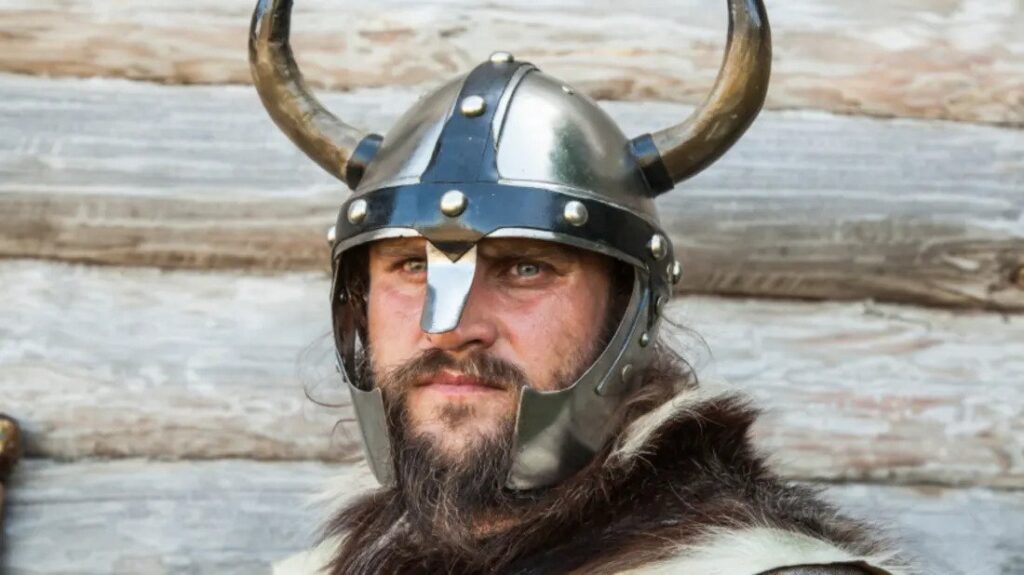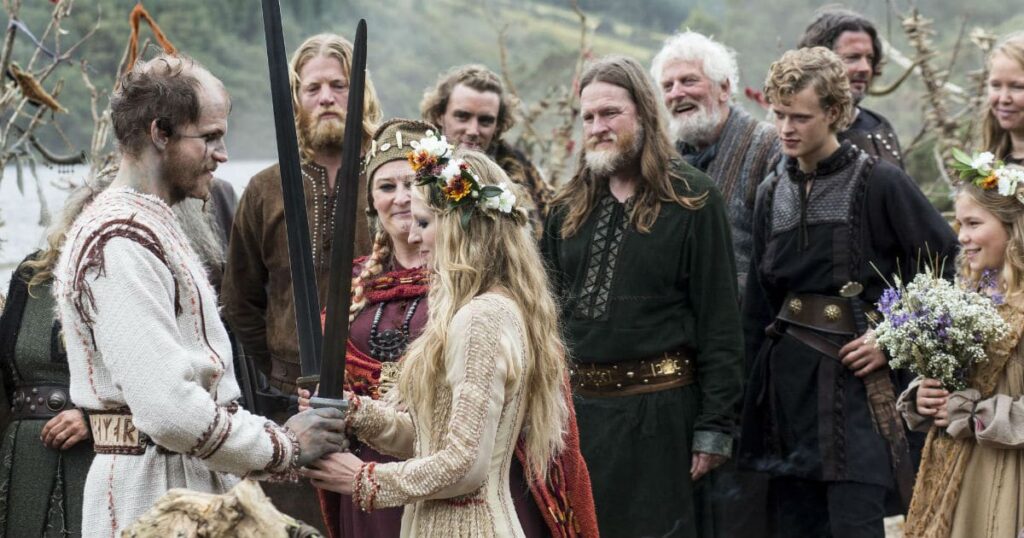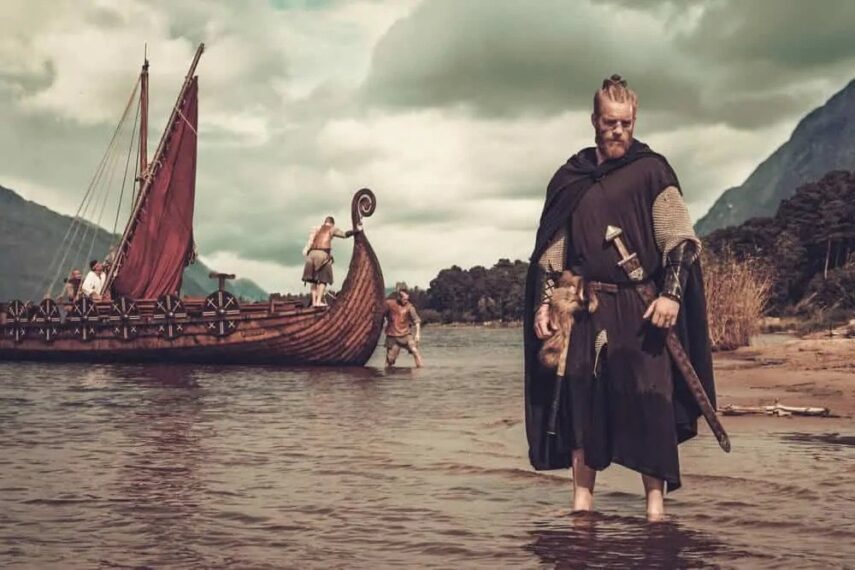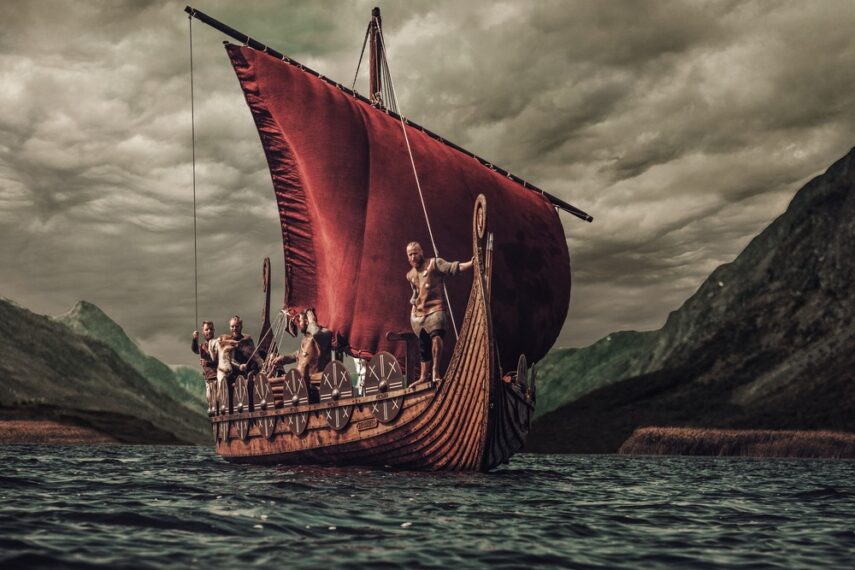Popular fiction movies recorded Vikings as vicious barbarians. From several movies, TV shows, video games, and novels, Vikings have always claimed the reputation for being loud, rugged, and dirty. Most of these stereotypes arose through the Catholic Church because they burned and looted British churches. However, is there any truth to these acclaimed stereotypes? So, come and help us uncover the legendary Viking people’s actual nature with these Viking facts.
1. Horned Helmets

Vikings are frequently shown wearing horned helmets, mostly on operas, cartoons, comics, and other visual materials. Contrary to popular beliefs, depictions that date from the Viking age didn’t show any proof that Vikings wore horned helmets to battle. The only real Viking helmet ever discovered didn’t have any horns on them.
Painters seemed to have falsified the 19th-century trend and were possibly inspired by reports of northern Europeans such as Roman chroniclers and Ancient Greeks. Long before the Vikings, Germanic and Norse priests put on horned helmets, but only for ceremonial purposes.
2. They spent most of their time on their farms
Although they are portrayed through myths as fearless warriors, they spent most of their time on their farms, engaged in agriculture. Even those who went on war campaigns returned to cultivating the land every time. During the absence of men, this job fell on their wives.
3. The Vikings took care of personal hygiene
It may sound unbelievable, but the Vikings paid much more attention to hygiene than any of their compatriots. Namely, they bathed at least once a week, and at that time it was too much. Archaeological research has revealed that they used tweezers, ear sticks, and razors made from animal bones or horns. It is also interesting that they always wore clean clothes before embarking on a bloody campaign.
4. Vikings respected their wives

Although women were oppressed throughout Europe during this period, this was not the case with Viking women. On the contrary, they had the same rights as men, which is why many decided to go to new conquests with their husbands. Also, they had complete control over their property and had the right to request a divorce, without fear of consequences.
5. Vikings Ventured All Over Eastern Europe
The Vikings ventured to regions now known as Belarus, Western Russia, and Ukraine. They set up posts for trading in this location, set sail to Don and Volga Rivers, and eventually reached the Caspian and Black Seas. They reached large cities such as Constantinople in the empire of Byzantine and the Islamic Caliphate of Baghdad. The important cities in Eastern Europe became the center of their trading posts.
6. Discovered Various Lands
The discovery of what is now known as the Faroe Islands in the Northern region of the Atlantic was all thanks to the Vikings. They also discovered various places such as Newfoundland, North America, Greenland, and Iceland. They even established settlements in some places they have discovered.
7. Carolingian Empire
The ascent of the Carolingian Empire during the 9th century paved the way for the Vikings. The Carolingian Empire was an empire in Europe now known as France, Italy, and other low countries. It also involves most of Germany, some parts of Spain, and Austria. The name was in honor of the founder, Charles the Great, or as he is better known as Charlemagne.
8. The Meaning of Viking

No one is sure what the real meaning of Viking is. But in Old Norse, the word Viking is about a practice where an exhausted ship rower hands over their spot to a new rower. The Viking title is associated with a man who is mainly working on a ship.
Another theory is that it originated from the Norse expression “sea mile.” However, this theory isn’t widely acknowledged by scholars, although it makes the relation between the sea and man. Based on Old English, the term was coined from a poem about raiders and pirates in the 9th century Scandinavia.
9. Viking Motives
The motives of Vikings are still debated and remains a mystery. One common theory is that Vikings raid because of the lack of opportunities in their homes, and there are several factors to this. One factor was limited availability of land to farm on and the traditional practice of the eldest son inheriting everything the father has.
Because of this, the younger sons with little to no inheritance went Viking for the sole reason of nothing else to do. Another theory is that of Scandinavia’s demographic imbalances with the ratio of men to women. One reason for these Viking raids isn’t only pillaging villages and stealing riches but also making women their wives.
10. Spread of Christianity
The increase of Christianity in the population played a vital role in putting a stop to the Viking raids. The most significant was the Christian idea of kingship, which is common in Europe. Christianity placed a common standard on the kings and their kingdoms that eventually caused a shift away from openly attacking one another.
Another effect of Christianity was the banning of keeping and taking Christian individuals as slaves. This was a major impact on the Viking’s motivation for raiding neighboring countries and lands.
11. Treating the Dead
The Vikings practice two ways of dealing with the dead. They cremate the dead or bury them. Either way, the deceased always acquired burial offerings, which were normally food, drinks, and weapons for the belief of having to keep themselves full and the ability to defend themselves on their way to the afterlife.
12. Viking Ships

There are various types of Viking ships. One of the most noteworthy Viking ships was the Knarr, which carried cargo loads for trading. In contrast to longships, these Knarrs were deeper and more spacious, though still very agile and able to progress long distances.
Takeaway
So, what do you think about these Viking facts that we have written for you? If you were given the chance of being a Viking, would you join them? There are still a lot of mysteries surrounding them, but we hope that these facts shed a little light on the Vikings.
Related Posts:
- Unique Sports You Didn’t Know You Could Wager On
- 7 Interesting Facts about Glass Bottles You Probably…
- 10 Reasons Why You Didn't Win Your Personal Injury Case
- Things You Must Know About The Marvelous Mrs. Maisel
- 4 Things that You Probably Did Not Know about Toner…
- GameFreakLied All Things You Need To Know About It







